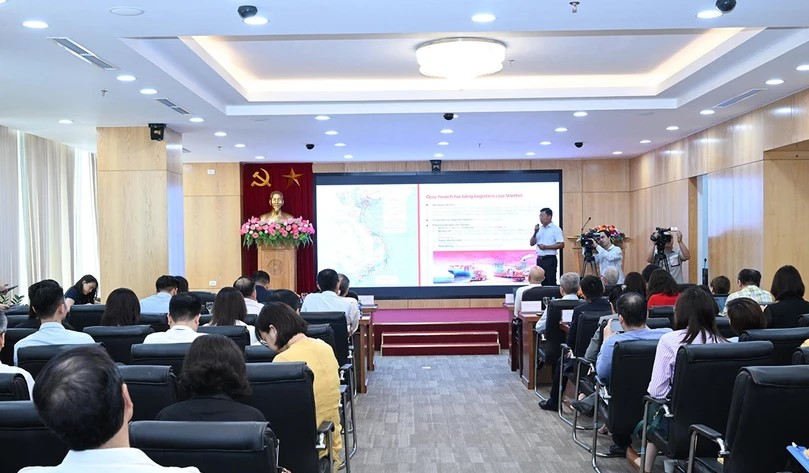
|
Getting your Trinity Audio player ready...
|
The integration of technology into logistics and e-commerce is set to deliver numerous benefits, enhancing the efficiency of these sectors and reducing logistics costs across the economy. This was the central theme of a workshop held in Hanoi, where experts emphasised the critical need for digital transformation in these industries.

Tran Thanh Hai, Deputy Director of the Ministry of Industry and Trade’s Agency of Foreign Trade, highlighted the National Digital Transformation Programme, which prioritises logistics as one of eight key sectors for digital transformation by 2025, with a strategic vision extending to 2030.
Central to this initiative is the Prime Minister’s Decision No. 200/QD-TTg dated February 14, 2017, which mandates the enhancement of Vietnam’s logistics services by 2025. This involves researching and applying modern technologies in management, operations, and supply chain training to elevate service quality.
Vietnam’s Logistics Performance Index (LPI) for 2023 stood at 3.3 points, ranking 43rd out of 154 countries and territories, and fifth among ASEAN members. The sector boasts an annual service revenue growth rate of 14-16%, with a market size of approximately $40-42 billion. The improvements in both the quantity and quality of logistics services have significantly boosted Vietnam’s import-export turnover.
According to the Vietnam Logistics Business Association (VLBA), the domestic logistics industry contributes 20-25% to the gross domestic product (GDP) and is projected to grow by 12% annually in the coming years.
The exponential growth of e-commerce presents substantial opportunities for logistics companies, as the increase in online transactions drives higher demand for transportation, logistics, and delivery services. However, this surge also poses challenges that necessitate efficient logistics solutions.
Experts at the workshop highlighted that applying technology to logistics can reduce delivery costs by 14% and increase the number of deliveries per vehicle by 13%. Advanced technologies enable logistics firms to optimise costs and enhance delivery productivity through intelligent route planning and quality operations.
Business leaders and investors were advised to focus on modernising and expanding warehouse facilities, optimising network planning for delivery options, and enhancing route efficiency. These strategies are essential to minimising delivery costs for both enterprises and end-users.
OpenGov Asia reported that the ongoing tech revolution is driving Vietnam towards modernisation and economic development, with a strong focus on transforming the logistics sector.
Despite its importance to socioeconomic growth, the logistics sector in Vietnam grapples with high costs – 16.8% to 17%, compared to the global average of 10.6% – due to limited capacity, inadequate infrastructure, and fragmented transportation systems.
Vietnam’s ranking in the World Bank Logistics Performance Index dropped from 39th in 2018 to 43rd in 2023, indicating areas needing improvement, such as infrastructure, customs operations, and international shipping. Additionally, the sector is slow to adopt digital technologies, hindering its transformation.
Deputy Minister of Industry and Trade, Phan Thi Thang, pointed out that Vietnam is now a top-10 global logistics market, with the industry expected to grow at a compound annual rate of 5.5% from 2022 to 2027. The country’s trade surplus of $24.59 billion in the first ten months of the year underscores the importance of leveraging digital transformation to enhance competitiveness and spur socio-economic growth, especially in the Mekong Delta, which is poised for logistics expansion.
Le Quang Trung, Vice Chairman of the Vietnam Logistics Service Business Association, noted the Mekong Delta’s logistical challenges, including costs accounting for 30% of production expenses. Although the region has 1,461 logistics service providers, mainly in agriculture, significant obstacles remain. Addressing these challenges requires improvements in logistics infrastructure, specialised processes, multimodal transport, air cargo services, and smart warehousing technologies.
By embracing digital transformation, the logistics and e-commerce sectors in Vietnam can achieve greater efficiency, cost-effectiveness, and service quality, driving sustained economic growth.
















